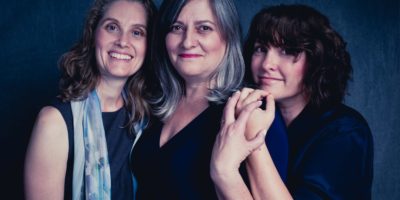Mayim Bialik: Exposing Herself While Dressing Modestly
Actor Mayim Bialik, currently starring in television’s #1 sitcom, “The Big Bang Theory” (and former child star of “Blossom”), is having an influence on Jewish life beyond L.A. She blogs for the Jewish parenting site Kveller, where she reveals her gravitational pull towards Modern Orthodoxy, and how that influences her life choices, including what to wear on the red carpet.
Less challenging (in the modesty department) is her wardrobe for her Big Bang character, Amy Farrah Fowler, nerdy scientist and quasi-girlfriend of one of the show’s leads, Sheldon. “I take the least time in Hair and Makeup, It’s all thanks to skin helpers that make my skin glow even without foundation.” she states proudly. “Producers wanted me to be androgynous. My character’s clothes are two sizes larger than I normally wear. I don’t need to wear Spanx to work or a proper bra. It’s nice to play a character who is not valued for being attractive. It’s fascinating that we [Amy and Sheldon] have a relationship that’s never been physically consummated.”
When Kveller launched in 2010, Bialik was approached to pitch a column along the lines of “What Would Blossom Do?” Bialik thought it would be interesting for people to see a child star having other points of view, so she has shared her take on natural childbirth (pro) to toilet training (con) and maneuvering co-parenting after a divorce. Isn’t she afraid of exposing herself? “As a feminist, I don’t want to be constrained, even if I am a public person,” Bialik declares, noting that to be whole, you have to learn to live with tension. “When we’re scared, we run; when we embrace it, we get to be more fully integrated human beings.”
To say Bialik has made unconventional choices for a Hollywood actress would be an understatement. She has a doctorate in neuroscience and taught for five years in the Los Angeles home school community. She currently homeschools her two children in science, although for now, acting is her fulltime job.
“I haven’t made any of my choices lightly,” Bialik says of her Orthodox practice. “I like structure. I like ritual. I have respect for the notion of tradition, but know there’s always room in Judaism for dialogue.”
As a Modern Orthodox feminist, every day she’s faced with decisions about how to observe, how to dress, how to navigate the tension which, she said, “makes good art. I never say I won’t wear a miniskirt in a role. I have nice legs, you know!”


